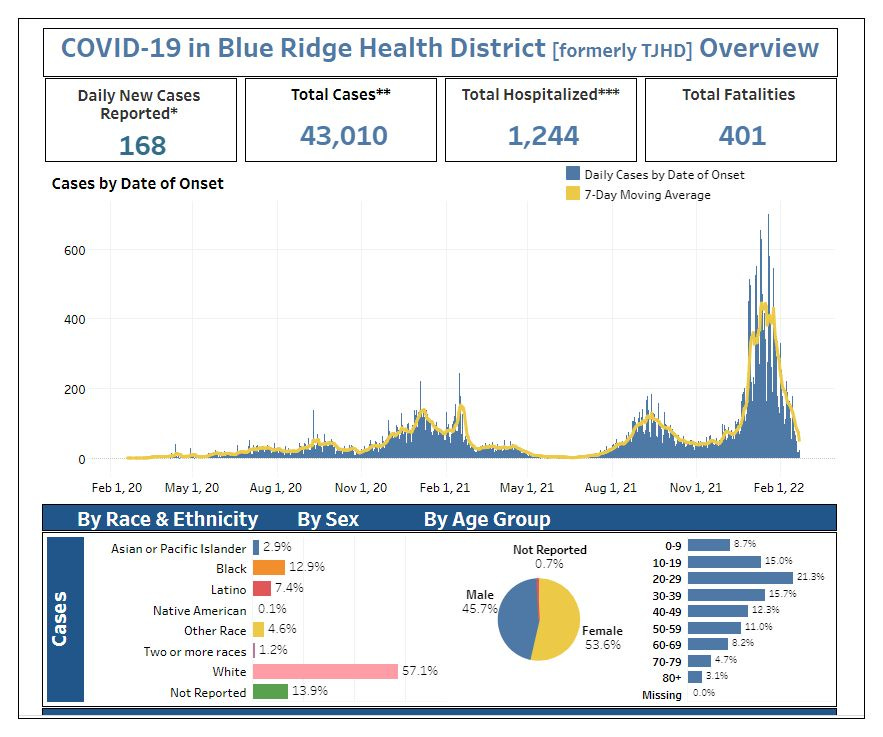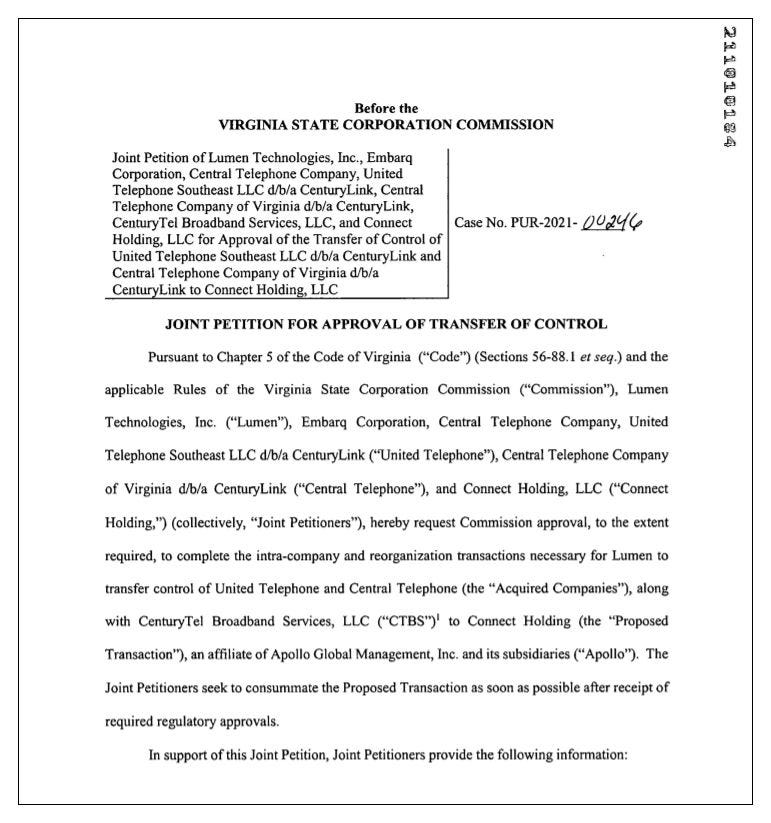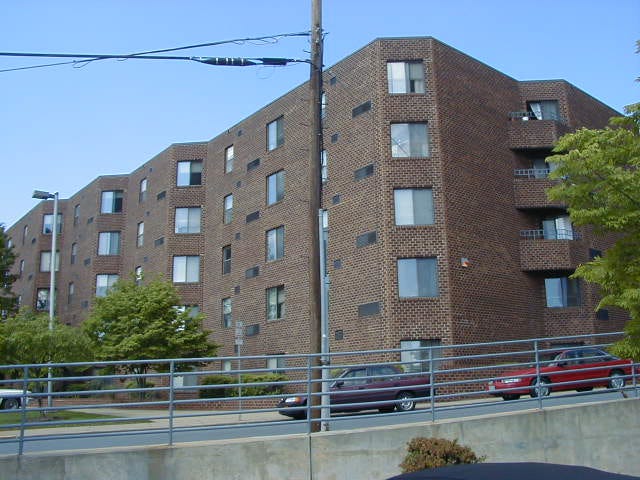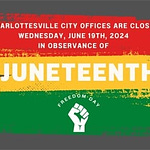Two is the only even prime number, an odd fact to point out on this February 22, 2022. We are twenty days past the predictions of large rodents and less than a month away from the spring equinox. Time does move fast, but we’re still only 14.5 percent of the way through the year. Oh, the things you’ll learn in every installment of Charlottesville Community Engagement! I’m your host, Sean Tubbs.
On today’s program:
Albemarle County Supervisors discuss incentives for developers to build housing units below market rate
Midway Manor may have a new future in which part of the downtown Charlottesville property will remain age and income restricted
A round-up of planning for other affordable housing projects in Charlottesville
Albemarle County wants state regulators to require CenturyLink’s successor to maintain old copper telephone lines
And Charlottesville wants the public to get a zoning 101
Patreon-fueled shout-out to LEAP
When you think of romance, you might not immediately think of energy efficiency - but the folks at LEAP think keeping your family comfortable at home is a great way to show you care during the month of love. Your local energy nonprofit wants to make sure you are getting the most out of your home all year round, and LEAP offers FREE home weatherization to income- and age-qualifying residents. If someone in your household is age 60 or older, or you have an annual household income of less than $74,950, you may qualify for a free energy assessment and home energy improvements such as insulation and air sealing. Sign up today to lower your energy bills, increase comfort, and reduce energy waste at home!
Pandemic update: Percent positivity below ten percent
The waning of the omicron surge of COVID-19 continues as the Virginia Department of Health reports a seven-day average of positive PCR tests of 9.6 percent, below ten percent for the first time since December 21. Case loads are still high, with a seven-day average of 2,423 new cases a day. Today the Blue Ridge Health District reports another 168 new cases.
Deaths associated with the omicron surge continue to be recorded. As of today there have been 401 total COVID deaths in the Blue Ridge Health District and 18,230 statewide over the past 23 months.
Albemarle County offers comments on transfer of CenturyLink assets to Lumen
This week, the State Corporation Commission is holding two meetings on a petition from Lumen Technologies to take over control of CenturyLink. Among the public comments submitted so far is the Albemarle County Board of Supervisors who sent a letter on February 10 summarizing concerns they made to Lumen officials at a January 12 meeting. As part of the deal, the new company would acquire copper-based assets and the county wants to make sure that service continues. (hearing webpage)
“Many of our vulnerable communities live in the rural areas of our county, where topography and distance often preclude cellular coverage,” the letter reads. “For these residents, this copper-plant is a vital lifeline for accessing 911 service, particularly during and after severe weather events.”
The letter also includes dozens of complaints about CenturyLink service for “terrible and ineffective customer service” and for a lack of maintenance of older equipment. (letter and complaints) (second set of complaints)
For anyone interested in learning more, there is a whole repository of documents available for public review, including Lumen’s petition to the SCC.
Midway Manor subject of new affordable housing development
The Charlottesville Redevelopment and Housing Authority will hold a public hearing next Monday on the issuance of up to $23 million in bonds that would be used by a California-based company to redevelop Midway Manor. In January, the property sold for $16.5 million, more than double its 2022 assessment of $7.5 million.
According to a legal notice published in the Daily Progress, the new company has requested the CRHA issue up the exempt facility bonds “to assist the Applicant in financing or refinancing a portion of the costs of acquiring, constructing, renovating, rehabilitating and equipping an age restricted affordable housing development to be known as Midway Manor Apartments, to consist of 94 one-bedroom units and 4 two-bedroom units.”
The notice states in capital letters that taxpayer funds will not be sought to pay back any of the debt that Standard Midway Manor Venture LP will incur. To learn more about exempt facility bonds, visit the Legal Information Institute at the Cornell Law School.
Since February 1, Midway Manor is now under management by the Franklin Johnston Group. Financing of the houses is provided by the U.S. Department of Housing through the Section 8 program, which bases rents on the income of tenants.
In an email this morning, CRHA Executive Director John Sales said the agency’s only role will be to issue the bonds.
Low-Income Housing Tax Credit applications underway
We are in the season when providers of affordable housing are preparing applications for Low Income Housing Tax Credits in advance of a March deadline. Summaries have been sent to the agency formerly known as the Virginia Housing Development Authority and that’s required notifications to localities. (read all of the summaries)
Piedmont Housing Alliance is seeking credits for 30 rental units at the Monticello Area Community Action Agency property on Park Street. These will be four one bedroom units, 22 two bedroom units, and four three bedroom units.
The Charlottesville Redevelopment and Housing Authority seeks credits from the housing authority pool for 60 units for Phase 1A of the Sixth Street redevelopment with half of them being one bedroom and the other half being two bedroom units.
This is separate from Phase 1 of the Sixth Street redevelopment, for which CRHA is seeking credits from the housing authority pool for 44 units with eight of them one bedroom, 20 two bedroom units, and 16 three bedroom units.
CRHA is also seeking credits for 113 units in the second phase of redevelopment of South First Street. These would replace existing units and would consist of 19 one bedroom units, 38 two bedroom units, 26 three bedroom units, 15 four bedroom units, and 15 with more than four bedrooms.

Last week, the company that is constructing the development of Friendship Court issued a press release announcing the groundbreaking from January. The firm Harkins is based in Columbia, Maryland.
“Friendship Court’s redevelopment will be the largest construction of low-income housing for the area in over 20 years,” reads the release. “A multi-phased project, Phase 1 will consist of 106 units with buildings 1 and 2 totaling 35 stacked townhome-style units, while building 3 will include a one-level structured parking garage and three levels as a wood-framed, center corridor apartment building.”
The project is being built to Passive House standards and will be Harkins’ third such project.
Charlottesville releases Zoning 101 presentation
The next new information in Charlottesville’s rewrite of the zoning code won’t be available until mid-April when staff and Rhodeside & Harwell will publish a document with an inventory of the existing housing stock versus what could be built under the new future Land Use Map. This will take the form of a Diagnosis report and an Approach report.
In the meantime, the city and the Cville Plans Together team has published a new page to provide an education on what the zoning process is all about.
“Today’s zoning also has a number of flaws and barriers to development previously identified by City planning staff, elected and appointed officials, and others,” reads the Cville Plans Together website. “This process is an opportunity to cure these flaws and remove the barriers to the kind of development that is described in the updated Comprehensive Plan.”
In January, a group of anonymous Charlottesville property owners filed suit in Charlottesville Circuit Court seeking to overturn the validity of the Comprehensive Plan. Read more in my January 12, 2022 story on that lawsuit.
Shout-out to the Charlottesville Jazz Society
In today’s second subscriber-supported public service announcement: The Charlottesville Jazz Society at cvillejazz.org is dedicated to the promotion, preservation, and perpetuation of all that jazz, and this Sunday the Society is sponsoring the return of Jane Bunnett and her all-female band from Cuba, Maqueque. A concert will be held at 7 p.m. at Unity of Charlottesville where Maqueque will play music from their latest release On Firm Ground/Tierra Firme. Get tickets online with discounts for students or members of the Charlottesville Jazz Society.
Albemarle Supervisors discuss incentive package for housing
Last July, the Albemarle Board of Supervisors adopted a housing plan that seeks to increase the number of units guaranteed to be rented or sold below the market rate. Housing Albemarle was adopted without a system of incentives to developers to keep those prices lower than they otherwise would be. That came back to the Board on February 16.
Albemarle Housing Coordinator Stacy Pethia has suggested creation of an overlay district in the zoning code that would allow for reduced fees and other waivers in exchange for creating lower-priced units.
“We did engage with developers and we had four meetings with developers between June and October of last year,” Pethia said. “During the first two meetings, staff listened to developer concerns and discussed housing policy goals. Based on that feedback collected during those meetings and research into incentive programs implemented in localities within Virginia and across the country, staff developed a list of potential incentives that could be in a package.”
The overlay would be restricted to Albemarle’s development areas and would be optional, meaning developers would not have to participate. If they did, there would be the possibility of many ways their bottom line could be assisted.
“They would offer a bonus density, reduction in building permit fees, and flexibility in design and parking standards,” Pethia said.
The overlay would also allow developers to bypass the zoning process in some places if they build to the maximum density allowed in the Comprehensive Plan. At a minimum, twenty percent of units would need to be kept below market rate at levels identified in Housing Albemarle.
“And the number of affordable units to be required would be calculated prior to applying the density bonus,” Pethia said. “This would provide developers with additional market rate units to help offset the cost of making the affordable units available.
The incentive plan will also address a gap in Albemarle’s current policy by creating a waiting list of people who will qualify for below-market opportunities based on their income.
“It’s really difficult to market the affordable units to income-qualified households and that’s really an important issue,” Pethia said. “It has meant that many of our for-sale units in particular have turned market-rate without being purchased by income-qualified households.”
In public comments before the discussion, Neil Williamson of the Free Enterprise Forum wanted waivers for affordable housing projects to be mandatory rather than at the discretion of staff.
“The reality is that Albemarle’s fast diminishing development areas where the easiest parcels to develop have been developed,” Williamson said. “That means parcels left to develop will likely require a special use permit. While the policy anticipates this reality, the opportunity for staff denial is too great.”
Williamson also said he wanted more robust incentives such as expansion of the development area as well as the county paying the hook-up fees to the Albemarle County Service Authority for water and sewer.
“Considering the importance of affordable housing to the community, certainly providing $20,000 per affordable unit is not too much to ask,” Williamson said.
That would be expensive to the county. Pethia said the recent approval of Premier Circle, Rio Point, and RST Residences created 414 below-market units. If the developers were to be 100 percent reimbursed, that would cost the county $5.6 million.
Supervisors were asked if they supported the idea of an overlay. Supervisor Bea LaPisto-Kirtley said she did, but not want to expand past a certain area.
“I for one do not want to see development go into the rural areas and to keep development in the development area,” LaPisto-Kirtley said.
Supervisor Chair Donna Price (Scottsville District) said there will come a point in time when that boundary will be adjusted, but not yet.
“We’re already at the point where we have to fill in more, build up higher, or we have to expand the development areas so it’s important for community members to understand we have to look at ways to try and achieve all of our objectives which includes as long as possible limiting the amount of the development area,” Price said.
Price was also skeptical of reducing parking standards at this time.
“We do not have a comprehensive transportation system that can get everyone throughout the community wherever they need to do,” Price said.
Supervisors approved the Rio Point on 27 acres in late December which will see a total of 328 units in an apartment complex on land that is currently undeveloped. That’s in the Rio District which is represented by Supervisor Ned Gallaway. He had looked at the draft calculation for bonus density.
“So Rio Point, if I’m understanding the answer, would have allowed 1,300 units the way the math was done?” Gallaway asked Pethia.
“That is correct,” Pethia said.
That would be based on provisions in other programs that grant a 45 percent increase in density based on the gross density. The actual calculations will change as the incentive package is further tweaked.
Gallaway suggested having the overlay apply only in certain parts of the county, such as those already identified in small area plans such as the Rio Road plan. However, he added he is not opposed to any ideas at this point in the development of the incentives.
Supervisor Jim Andrews (Samuel Miller District) said he wanted staff to take a deeper look into the results that have happened in other communities that have created developer incentives.
“I would be really interested in hearing more about looking not only at what they’re doing but how successful they are at what they’re doing,” Andrews said. “Loudoun County’s proposals for example, their program I guess has been in place long enough to have a little bit of history. It looks to me like it’s having some success. Those are the ones we want to emulate if we can, if they work for our circumstances.”
Supervisor Ann Mallek (White Hall) said she needed more information and for detail.
“I am very concerned about an overlay that applies to every piece of direct because there is a great difference between the capability of one lot versus another to actually accomplish something and have a product where people would want to live,” Mallek said.
Staff will return to the board with more information at a later date but Supervisor Gallaway pointed out that the package’s adoption will take until after the one year anniversary of the adopting of Housing Albemarle.
General Assembly update
With just over three weeks to go, action is moving fast in the General Assembly, with bills that passed in one house with a close partisan vote now meeting their fate in committee meetings.
These include:
The Senate Commerce and Labor Committee killed a bill yesterday to cap the minimum wage at $11 an hour. The vote was 11 to 4. (HB296)
That committee also defeated a bill to not move forward with subsequent increases mandated by a previous General Assembly. That vote was 12 to 3. (HB320)
A bill to allow employers to pay less than the minimum wage if they have fewer than ten employees was also defeated 12 to 3. (HB1040)
Bills to restrict collective bargaining by public employees were also defeated. (HB336) (HB337) (HB341) (HB883)
The Senate Committee on Education and Health ended consideration of a bill that would made it easier for School Boards to dismiss new teachers by extending probationary periods. (HB9)
The Senate Judiciary Committee defeated a bill that would have reduced penalties for violating the state’s concealed weapon laws on a 10 to 5 vote. (HB11)
On a 8 to 7 vote, the Senate Rehabilitation and Social Services Committee ended consideration of a bill that would have required the parole board to review the transcript of the trial for each incarcerated person up for parole. (HB435)
Support the program!
Special announcement of a continuing promo with Ting! Are you interested in fast internet? Visit this site and enter your address to see if you can get service through Ting. If you decide to proceed to make the switch, you’ll get:
Free installation
Second month of Ting service for free
A $75 gift card to the Downtown Mall
Additionally, Ting will match your Substack subscription to support Town Crier Productions, the company that produces this newsletter and other community offerings. So, your $5 a month subscription yields $5 for TCP. Your $50 a year subscription yields $50 for TCP! The same goes for a $200 a year subscription! All goes to cover the costs of getting this newsletter out as often as possible. Learn more here!





















February 22, 2022: Albemarle Supervisors consider affordable housing incentives; A round-up of forthcoming affordable projects in Charlottesville